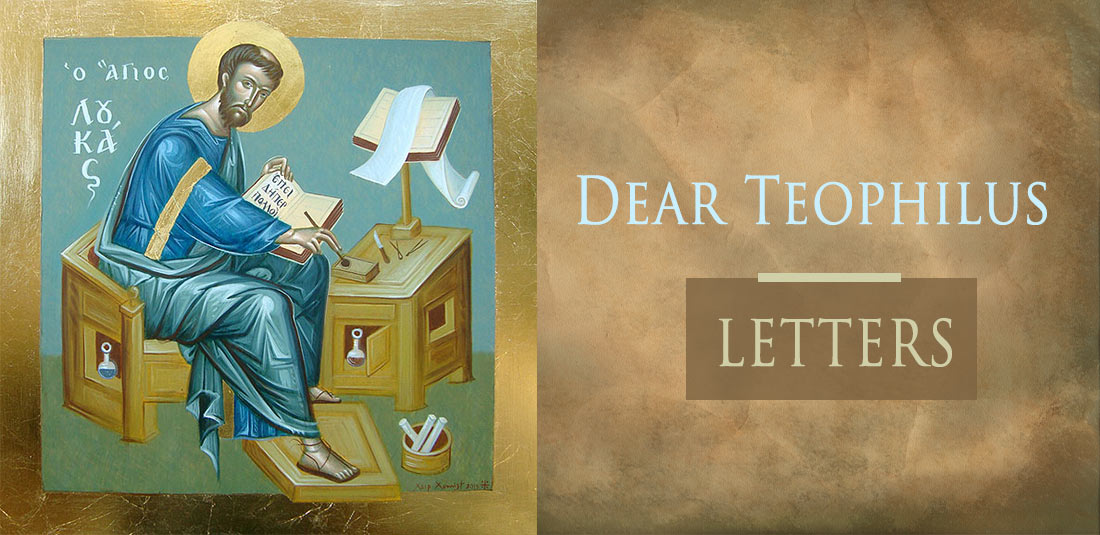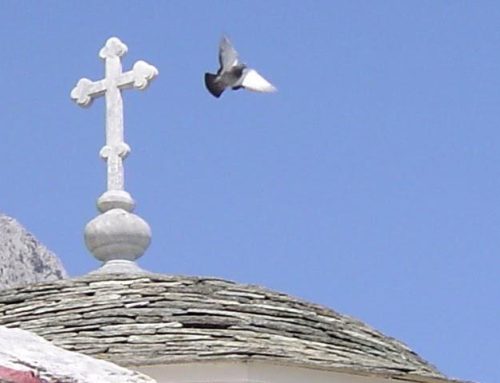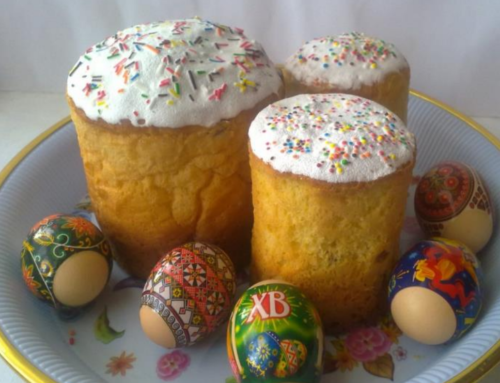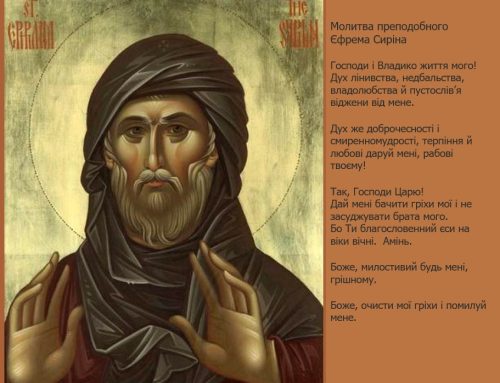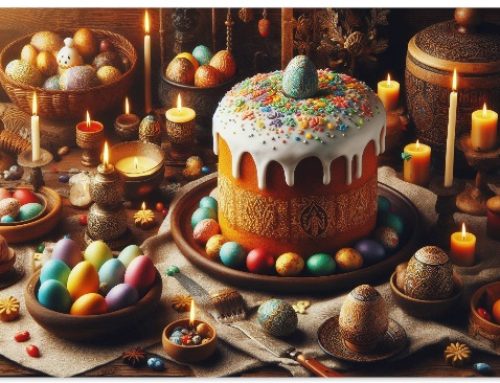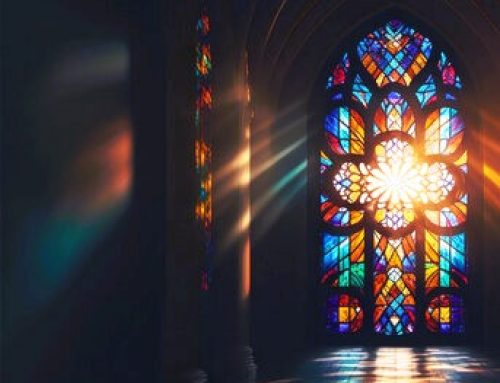Dear Theophilus , (Letter 76. )
One of the criticisms leveled at religion is that it is used as a crutch by those who cannot face up to reality and therefore recede into a make-belief world of illusion where everything turns out well. It is often claimed that religions arose because humanity needed mechanisms to cope with the tragedies of life and there is nothing more to this than wishful fantasizing.
One of the problems with those who criticize faith is that they themselves know very little about the faith they wish to denigrate. In order to understand faith and what it teaches one has to immerse into it and into the worship that expresses it.
To the charge that faith is merely a crutch for those who are not strong enough to withstand the onslaughts of life one can raise the following points.
Consider what happens during the third week of lent. The cross is brought out for veneration and we are reminded of the agony that Christ went through. He began to be sorrowful and troubled, writes St. Matthew. The disciples are numbed with puzzlement and fear and it is he who calls on them to remain with him. But they do not hear him and as one abandons him at the Last Supper, the remainder will abandon him on Golgotha.
Something strange and challenging to our beliefs is happening here. Light up a candle, ask for prayers – and everything will be fine. This defines the faith of many of us but it is not the faith that will save us. Notice how even the crowds react. When the miracles are happening they are present in great numbers but when the passion nears, they vanish as mist before the sun. They are not having their religious aspirations satisfied. What is this talk about suffering, they ask. Instead of help, we are directed to the cross. Instead of comforting promises, we are told that as he has suffered, so will we. As he was persecuted, such is the fate that awaits us.
And we hear the words that many of us utter – where is God when we need Him? The throng, together, with us, cries out, he saved others, but he cannot save himself. He is the king of Israel, well, let him come off the cross and we will believe. Give us a conclusive miracle so that we can believe and we will. They bargain dishonestly with God because they will not believe even if someone comes back from the dead.
You see how wrong the criticism of faith, as a crutch, is. As long as we expect from God miracles, and immediate interventions and the banning of suffering, this God is not the God of our faith. He does not constantly save us from suffering, but He does indeed save us through suffering. Usually, any inexpensive pill will free us from a headache better and more quickly than prayer. But if our faith is just some pharmacy in the sky, we will not understand what our faith, and the cross, really teach us.
The other danger about miracles is that God ends up being our servant at beck and call to our wishes. As God honors our freedom, we must honor God’s freedom, as well. What we start to realize is that our faith is not about comfort and help but about victory and joy – victory over death and joy in that knowledge and in the knowledge of God’s love for us. On Easter night we sing: Now all is filled with light, heaven and earth, and the regions below. Easter is a foretaste of what is to come and our language is inadequate to express this experience, this overwhelming joy. The joy lies in the fact that the barrier to eternal life has been broken and we can enter into this new life and bliss. At this point, proofs and logical statements are insufficient – we step forward in faith.
You raised the objection that faith is called into opposition to knowledge. You mention the words of Christ to Thomas that blessed are those who have not seen and yet, believe. What this shows us is that the Resurrection and the new life it brings cannot be explained or rationalized through the categories of the old world. To cling to our out-dated thinking will not help us to understand something that stands outside the flow of history as we know it.
We have seen that those who insist on ‘touching’ and ‘measuring’ and using this kind of ‘evidence’ which gives scientific happiness has led to concentration camps and gulags in the name of happiness, freedom, and justice. Instead of diminishing, sadness has increased. Instead of granting joy, this ability to touch and measure and put numbers onto our decisions has led to countless deaths with promises of a new order after the sacrifices that seem to have no end. Creation continues to groan in pain in spite of all the spurious promises made to us that things will get better.
There is an important additional lesson that the episode with Thomas teaches us. At the end he breaks through his pride which insisted that he is the final arbiter of what is or is not true and real. He finally believes and through this belief he confesses his faith.
One of the major impediments to our joy is the presence of evil and suffering which says, as the mockers of Christ said – where is your God now, where is your salvation, where is your redemption? Your faith is all a mirage that vanishes in the presence of suffering. And this is where the saints come to our help. It is instructive, that almost without exception, they go through the darkness of testing through suffering and they come through as beacons for us, we who have a miniscule amount of faith in comparison to them.
Faith is a gift that comes to us from God. Remember the story of the forbidden fruit in the Book of Genesis. What this tells us, amidst many other messages, is that the fruit of this one tree, in contrast to all the others, was not given as a gift to man. It did not bear God’s blessing and as a result, it did not bring life, but it brought death. The fruit became for Adam something isolated from God, something that supposedly contained its own value and this was a lie. By consuming this ‘fruit’ man wanted to attain life without God and, of course, this is an impossible task. Instead of turning to God with love, man turned to the world with love and only to the world, cutting himself off from God. But the world, the food of the world, does not have life in itself. It is dead. It is we, with the life we have been gifted by God, that transform this food into life when we consume it but this is an action that has limits that appear in the death of our bodies. Nothing has life in and of itself. This is a myth into which we have entered with Adam and we still harvest the cruel fruits of that.
And as Christ stands before the tomb of Lazarus we see where all this has led us. In one of the Orthodox funeral hymns we are reminded we are the image of God’s ineffable glory and yet, consider Lazarus in his tomb. They remove him and hide him so that he would not smell and disrupt their routines, this man, this crown of creation. We are faced here with the horrible meaninglessness of the world, this abiding of ours in the cosmic cemetery we call Earth and we attempt to respond with the hiding of these realities behind all kinds of masks that deny death.
Man desires, deeply, life, eternal life, life freed from the blemish of the fall. This life is not found in food, although food can be a vehicle for this life, particularly in the sacraments. This life is not in the water that we drink, or in the air that we breathe or in the food that we consume, but this life is in our communion with God.
In addressing your concerns I have been brutal in describing the reality of our condition. We walk as in a dream oblivious to what our real condition is. We numb ourselves to the gravity of our situation through mindless entertainment and through any kind of diversion which will hide our real state from us. It is only when we are exposed to the reality of our state, that we can understand our need for salvation, for redemption. Then we will start to see our faith from a different and deeper perspective.
No, our faith is not some crutch we need to deal with the harshness of the world we dwell in. Our faith is realistic in terms of the fallenness and the depravity of our world. But it does gift us with hope because it sees the new reality that Easter brings to us and with it, the joy that nothing can take away. The testimony of many thousands of saints attests to the truth that our faith brings us.
Sincerely,
Bar-Abbas

